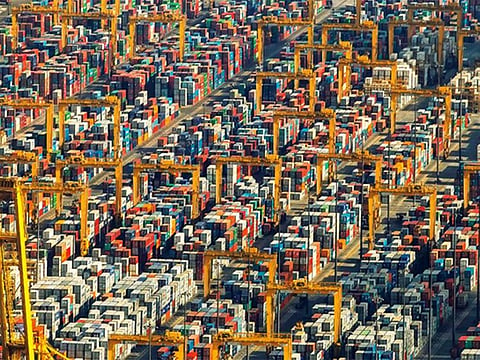Saudi authorities respond to outcry against new-look cigarettes
Consumers blame change in flavour on manufacturing facilities in UAE

Dubai: After days of backlash on social media, government agencies in both Saudi Arabia and the UAE have spoken out against claims of immediate harm from new tobacco products in the Kingdom.
Authorities in Saudi Arabia implemented new regulations recently on cigarettes that meant a change in packaging.
Social media was soon complaining about the new cigarettes, labelling them as dangerous, fake, and substandard, and blaming manufacturing facilities in the UAE.
They also called for a boycott of what they called “fake products.”
Dr Hisham Al Jadhey, chief executive officer of the Saudi Food and Drug Authority, told Fealsora, a Saudi show on TV channel Rotana, that the regulator had not received any reports from the Ministry of Health about any cases of lung hernia caused by new cigarettes, as some users were claiming.
He said the new standards for cigarettes are in line with a deal signed between Saudi Arabia and the World Health Organisation to curb smoking.
Al Jadhey said the Saudi Food and Drug Authority merely enforced the new standards lately on the packaging, but that had nothing to do with the flavour of the tobacco.
The Dubai Media Office also commented on Monday on Twitter, saying there had been a “systematic smear campaign”, filled with misinformation, against the UAE.
The Media Office vouched for food products exported from Jebel Ali Free Zone, saying they went to over 130 countries around the world, and this was testament to their safety and world-class standards.
Some social media users had claimed that a new bar code being placed on the cigarette packs implied that the cigarettes were made in facilities in Dubai’s Jebel Ali Free Zone, and called for a boycott of food products manufactured in the UAE.
Ahmed Al Hakbani, governor of Saudi Arabia’s General Customs Authority, told a Saudi media outlet that cigarettes being imported into the Kingdom come from facilities outside the UAE, and the new code of ‘629’ on packs does not mean the products come from Jebel Ali.
He stressed that cigarettes being sold in Saudi Arabia are imported from three main markets: Turkey, Germany, and Switzerland.
The Food and Drug Authority’s Al Jadhey added that tobacco companies are the only ones that can change the flavour of cigarettes, and that doing so is a way to differentiate one brand from another.
Still, the matter has generated debate on social media, with some users creating new hashtags specifically on cigarettes and on boycotting products from the UAE.
Users have also flooded Philip Morris International, the cigarette-manufacturing giant, with tweets to clarify the alleged changes in flavour.
The company said a few weeks ago on Twitter that its cigarettes being distributed in Saudi are “authentic and in line with the Saudi plain packaging regulation,” but has not publicly commented on the matter more recently.
When contacted by Gulf News, Philip Morris International did not comment.
The outrage on social media is just the latest to hit a company, only to gain increased traction after a few posts.
Alex Malouf, a communications expert based in the UAE, said that brands must be proactive in informing consumers of any new changes before they flare up online.
“Any organisation has got to proactively communicate on an issue. If there’s going to be any change in a product or if a new product is coming out, brands should go out and engage the audience and tell them what is happening and why beforehand,” he said.
Cigarette manufacturers, including Philip Morris, had not announced changes in their products, and when asked about the matter online by social media users, said they would message them directly.
“If you’ve got something to say, as a brand, say it to everyone,” Malouf said. “If it’s an issue related to a particular person, then, yes, message them, but if you want to get a message out, you’ve got to proactively push out what you want to communicate to everyone.”
“You want the information to be public and to be shared transparently because it all helps in building trust.”



